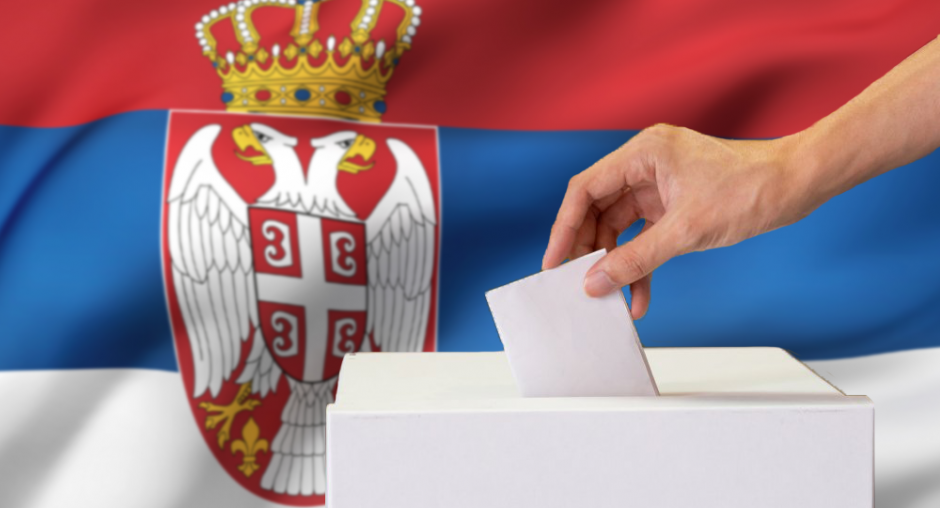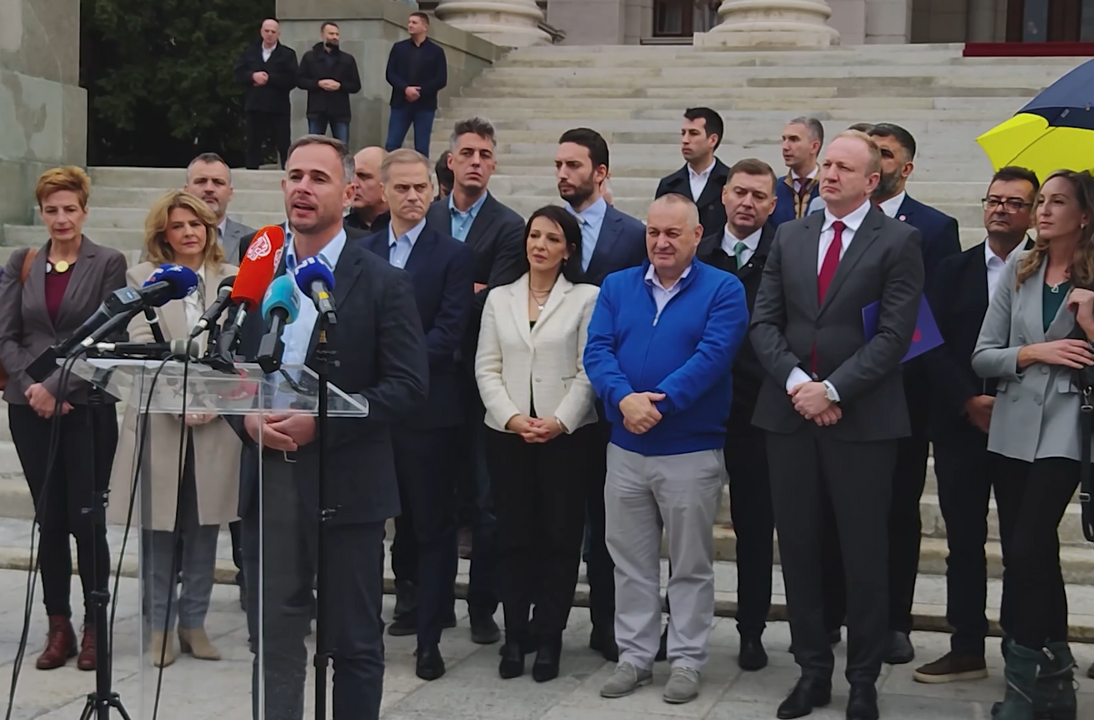As the upcoming general elections in Serbia takes center in the political stage, approximately 6.5 million voters are poised to make their voices heard on the 17th of December, marking yet another chapter in the nation’s electoral history. These early elections, a recurrent theme in contemporary Serbia, come at a time of heightened political fervor and societal engagement. Beyond the sheer act of casting votes, the forthcoming elections (local and parliamentary ones) bear the weight of a nation navigating its political crossroads, where unity, dissent, and the concept of stabilitocracy intertwine.
The forthcoming parliamentary elections mark the 14th iteration since the introduction of multiparty elections in 1990. Remarkably, out of these fourteen elections, only four parliaments have served a full mandate, whilst in the last decade alone, Serbia experienced a remarkable frequency of snap parliamentary elections. The years 2012, 2014, 2016, and 2022 witnessed the Serbians heading to the polls, each time in the form of early or snap elections. The upcoming 2023 elections (the third within almost four years) continue this trend, adding another layer to the complex tapestry of Serbia’s democratic journey. This recurrent pattern prompts reflection on the driving forces behind these frequent electoral exercises, extending beyond the conventional narrative of democratic necessity.
The current political landscape
The mass shootings of May 2023 that left 19 people dead (mainly children and young people), initiated a series of massive protests all over Serbia and served as catalysts for increased political activism, with citizens taking to the streets to voice their concerns. While the protests have continued, a core of opposition to the general policies conducted by the government and President Vučić seemed to have formed.
Indeed, an alliance was born out of the “Serbia Against Violence” protests, making it the largest opposition coalition in terms of the number of parties since 2012. The signatories of this groundbreaking agreement, mainly pro-EU political formations, include five parliamentary parties: the Democratic Party (DS), Green-Left Front (ZLF), Together (Zajedno), the People’s Movement of Serbia (NPS), and the Party of Freedom and Justice (SSP). Beyond these, the Free Citizens’ Movement (PSG), Ecological Uprising (EU), and the extra-parliamentary Serbia Centre (SRCE) party have also joined the coalition.
The protests that led to the formation of this alliance became a turning point, not only in expressing public dissatisfaction, but in reshaping the political landscape. The ruling Serbian Progressive Party (SNS), which had long held a dominant position, has meanwhile experienced a dent in its popularity. This decline follows months of opposition protests, and simultaneously an effort by the latter to unite their demands.
In this environment, the call for early elections by President Vučić has been perceived as a step in cementing his authority, as well as to stop the opposition from becoming a united front that could challenge the status quo of his regime. Moreover, the call came under a period of external pressure upon the ongoing talks between Serbia and Kosovo, requiring them to settle on a modus vivendi and modus operandi with each other.
Amid such political and social polarization, the decision taken by Vučić downplays another concept; that of stabilitocracy.
Stabilitocracy: Stability in political seas?
Governments often portray themselves as guardians of stability, standing as bulwarks against perceived internal and external threats. This narrative, while aiming to fortify the image of the political leader and the government around him, sometimes raises questions about the legitimacy of the threats posed. In Serbia’s political narrative, the notion of external threats and the government’s role in securing stability have been pronounced themes. However, scrutinizing these assertions is crucial, as it prompts a reflection on whether the perceived threats are genuine concerns or strategic tools to consolidate power.
Stabilitocracy, when unchecked, can potentially lead to non-democratic rule and democratic backsliding. The narrative of ensuring stability can inadvertently become a means through which a regime prolongs its position, justifying measures that might erode democratic principles.
In the specific case of Serbia, one of the notable aspects is the apparent stagnation in the domain of rule of law (judicial reforms, basic rights and freedoms, as well as independence of the media) in the process of EU accession. The prolonged stay in the accession process has led to concerns among experts who accuse the current Serbian government of undermining democratic institutions. This juxtaposition raises critical questions about the interplay between stabilitocracy, EU aspirations, and the democratic fabric of the current regime. The link between stability narratives and EU accession becomes a crucial factor in understanding the trajectory of Serbia’s governance.
The 14th multiparty elections that take place in five days in Serbia will find the Balkan country at a juncture defined by dynamic political currents. The recurrent rhythm of early elections, the emergence of a formidable opposition alliance, and the influence of stabilitocracy paint a canvas where the hues of democracy, accountability, and stability blend in intricate patterns.
The simultaneous occurrence of local elections in key cities amplifies the significance of 17th December, as citizens not only determine the trajectory of national governance but also shape the leadership in their local municipalities. The unity forged in the aftermath of mass protests and tragic events underscores the resilience of Serbia’s democratic spirit, challenging political narratives and fostering a collective commitment to a more accountable and transparent future.
As the polling day approaches, the eyes of the nation and the international community will be keenly focused on Serbia, witnessing a democracy in motion, responding to the ebb and flow of societal expectations. Regardless of the results, the very act of democratic participation reaffirms the enduring strength of democracy, a force resilient in the face of change, challenge, and in the pursuit of a better future in Serbia and in the Western Balkans in general.

